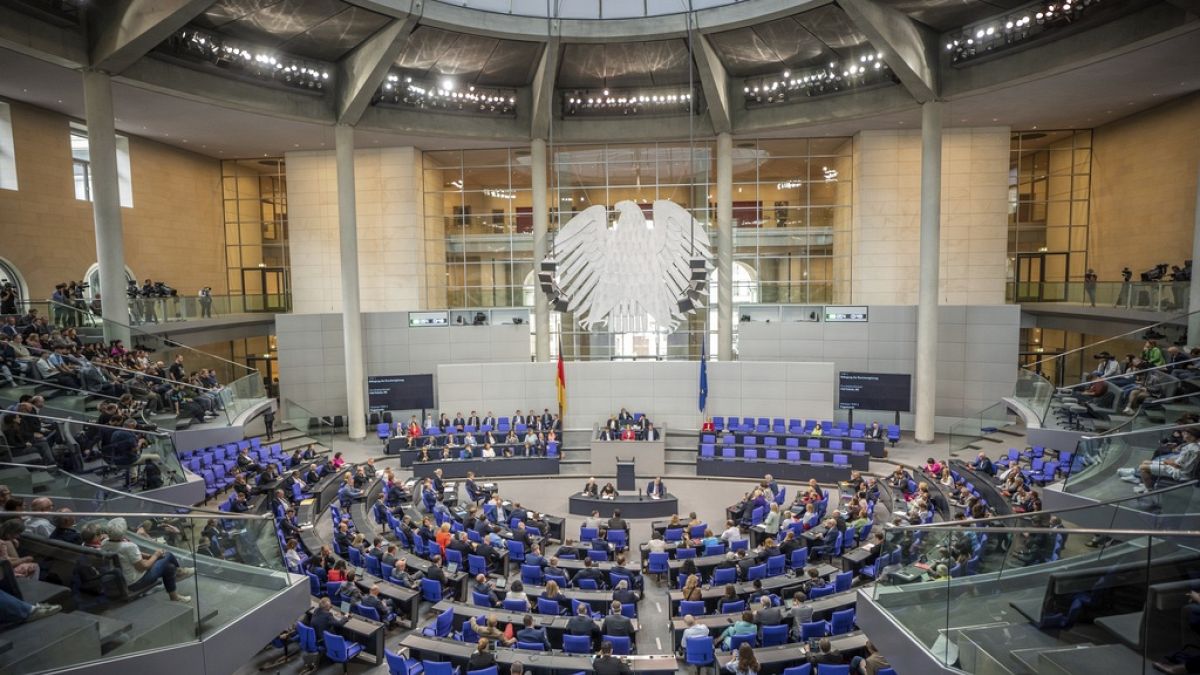Germany’s highest court recently made a significant decision to uphold an electoral reform aimed at downsizing the country’s overcrowded parliament. The Federal Constitutional Court in Karlsruhe supported the core components of the reform, including reducing the Bundestag from 736 members to 630 and eliminating overhang and compensatory mandates. However, the court overturned a planned change that would have disproportionately affected smaller parties. This change, known as the basic mandate clause, would have required parties to receive at least 5% of the vote or have three directly elected lawmakers to be represented in the Bundestag. The ruling came in response to objections from parties such as the Christian Social Union and the Left Party, who feared losing their representation in parliament.
The decision by Germany’s highest court to uphold the electoral reform comes after years of debate surrounding the size of the Bundestag. The 2021 national election produced a record number of 736 members, prompting calls from across the political spectrum to reduce the size of the parliament. The new rules approved last year aimed at capping the chamber at 630 members starting with the next general election in 2025. Under the German electoral system, voters have two votes – one for a directly elected candidate and one for a party list. Parties must receive 5% of the list vote or have three directly elected lawmakers to secure representation in the Bundestag.
The court’s decision to strike down the basic mandate clause raised concerns for parties like the Christian Social Union, which primarily operates in Bavaria and faces challenges reaching the 5% threshold at the national level. The Left Party, which narrowly missed the 5% support in 2021 but still secured representation due to three directly elected lawmakers, also raised objections to the clause. CSU leader Markus Söder viewed the ruling as a success for Bavaria and criticized the national government. However, Bundestag speaker Bärbel Bas, a member of Chancellor Olaf Scholz’s Social Democrats, welcomed the court’s decision to maintain the core aspects of the electoral reform, emphasizing the importance of capping the number of lawmakers to control the parliament’s growth.
The legal battle over the electoral reform in Germany highlights the complexities of balancing representation and efficiency in a democratic system. The court’s ruling to uphold the downsizing of the Bundestag while overturning the basic mandate clause underscores the importance of maintaining fair representation for all parties. The reform aims to address the issue of an overcrowded parliament while ensuring that smaller parties still have a voice in the legislative process. The decision also reflects the ongoing challenges faced by traditional big parties in adapting to changing political landscapes and maintaining their influence within the electoral system.
The controversy surrounding the electoral reform in Germany reflects broader concerns about the functioning of democratic institutions and the need for ongoing political reforms to adapt to evolving democratic norms. The debate over the size of the Bundestag and the representation of parties in parliament highlights the tensions between proportional representation and stable governance. The court’s decision to uphold the core elements of the reform while striking down the basic mandate clause signals a delicate balance between ensuring fair representation and preventing the parliament from growing uncontrollably.
In conclusion, Germany’s highest court’s recent decision to uphold the electoral reform while overturning the basic mandate clause underscores the challenges and complexities involved in reforming democratic institutions. The ruling reflects the ongoing debate surrounding the size of the Bundestag and the representation of parties in parliament. Moving forward, the country will need to navigate these issues carefully to ensure a fair and efficient electoral system that balances the interests of all parties. The court’s decision sends a clear signal about the importance of maintaining a proportional representation system while addressing concerns about an overcrowded parliament. As Germany prepares for the next general election in 2025, the ruling will likely have a lasting impact on the country’s political landscape and the functioning of its democratic institutions.











